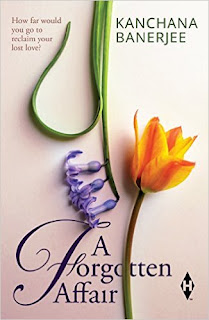“A Forgotten affair” has a storyline with a rather unpredictable kickstart.
The prologues and the opening chapter throws a flash forward
into a couple of snapshot scenes, showing us how the regular life of the
protagonist characters are over certain new year eve party scenes. Past the
prologue and just a couple of chapters, the book now opens into a scene in a
hospital ward. A lady named Sagarika. An accident, a bomb blast in a local
train. In Mumbai. A fatality. A cut mark on her head. A return from the dead. A
journey, in which she has left her memory behind. A loss, unaccounted. Yet, has
her past left her too?
The flow is smooth and structured. The descriptions are
meticulous and detailed, as is the set-up against which the story is carved.
Though we do not get to see much of the two cities where the two cities take
us, noticeable care has gone into describing the ‘where’ and the ‘what’ of the
scenes, dialogues and people. The author takes us along, with ease, from one
setup into a next without falter.
With an unpredictable beginning blending into a smooth flow.
The main characters are three. A wife, Sagarika, who has a talent for art but –
unhappily but without much fuss - gives up exhibitions for foreign vacations. A
lover, a dreamer kind of a young boy, who meets, greets and falls into a
relationship that they keep at “conversation and sex” only, for matters of mutual
convenience, until the girl goes missing and the boy in hindsight realizes that
he misses her. And a husband, who is devilish in his ways and deals, too crude
to be even civil or diplomatic. Together, they form a story which can be perhaps
be called a textbook case of a domestic abuse and woman emancipation. However
the twist is in the fact that the protagonist lost her memory and is struggling
with life thereafter. And the ending is open ended. It leaves the reader with a
streak of hope as the protagonist, Sagarika, chooses the path of self
dependence over playing a damsel in distress that she had perhaps been playing
all her life so far. At the end, she leaves in search of finding herself back
instead of riding the horseback with the charming prince.
The book is an extremely easy read. Straight, linear and uniform. And fast paced. Even though the story is
linear, there is no point at which it feels anything close to a drag. The eventfulness
at every turn of page helps you to go over it smoothly and quickly. It is on
average a two to three sittings read, cover to cover. The writing style is
indeed one of a practiced hand. Given the eloquence with which the author structures
and narrates the story, it is any day a pleasant read. Smooth and fast.
Good luck to Kanchana, and power to your pen!
This is a commissioned review.

No comments:
Post a Comment
Did you like it? Did you not? Please leave a comment...